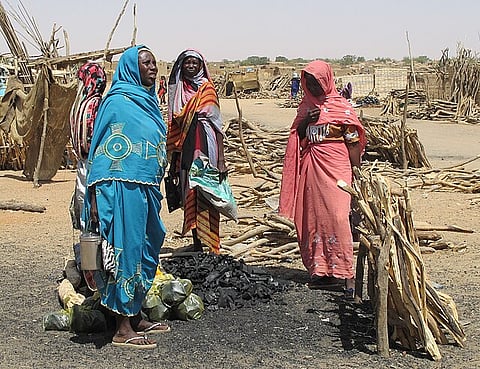

The conflict in Sudan has created one of the world's most severe humanitarian catastrophes, with over half the population now reliant on aid amid escalating violence and systematic atrocities .
The war between the Sudanese Armed Forces (SAF) and the paramilitary Rapid Support Forces (RSF) has plunged the country into a devastating humanitarian emergency. Recent assessments indicate that 30.4 million people, which is over two-thirds of Sudan's population, are in need of humanitarian assistance . This situation is exacerbated by what has become the largest and fastest-growing displacement crisis in the world. More than 12 million people have been forced to flee their homes, with nearly 9 million displaced within Sudan and over 3 million becoming refugees in neighboring countries .
The humanitarian suffering is intensified by deliberate siege tactics and widespread violations of international law. The recent fall of El-Fasher in Darfur to the RSF after an 18-month siege highlights a brutal pattern of warfare . Cities like Babanusa, El-Obeid, Kadugli, and Dilling remain under siege, cutting off civilians from essential aid . A UN fact-finding mission has documented harrowing human rights violations, including mass killings, rape, torture, and forced displacement . The UN human rights chief has described a "catastrophic surge in violence," with these atrocities often seemingly filmed by the perpetrators themselves .
A man-made famine is gripping the nation, a direct consequence of the conflict. Over 24 million people face acute food insecurity, with famine conditions confirmed in several regions . The World Food Programme warns that more people are living in famine conditions in Sudan than in the rest of the world combined . Simultaneously, the health system is on the brink of collapse, with more than 70% of Sudan's hospitals destroyed . This has left millions without access to medical care and fueled outbreaks of deadly diseases like cholera .
Despite the scale of the suffering, the international response has been widely criticized as "woefully inadequate" . Diplomatic efforts have repeatedly failed to stop the fighting or ensure the protection of civilians. Charlotte Slente, Secretary General of the Danish Refugee Council, stated that "statements have a very limited impact," and she urged the international community to focus on preventing atrocities rather than just managing the consequences . The UN's humanitarian operations are also severely hampered by a lack of funding, with aid agencies unable to meet the overwhelming need .